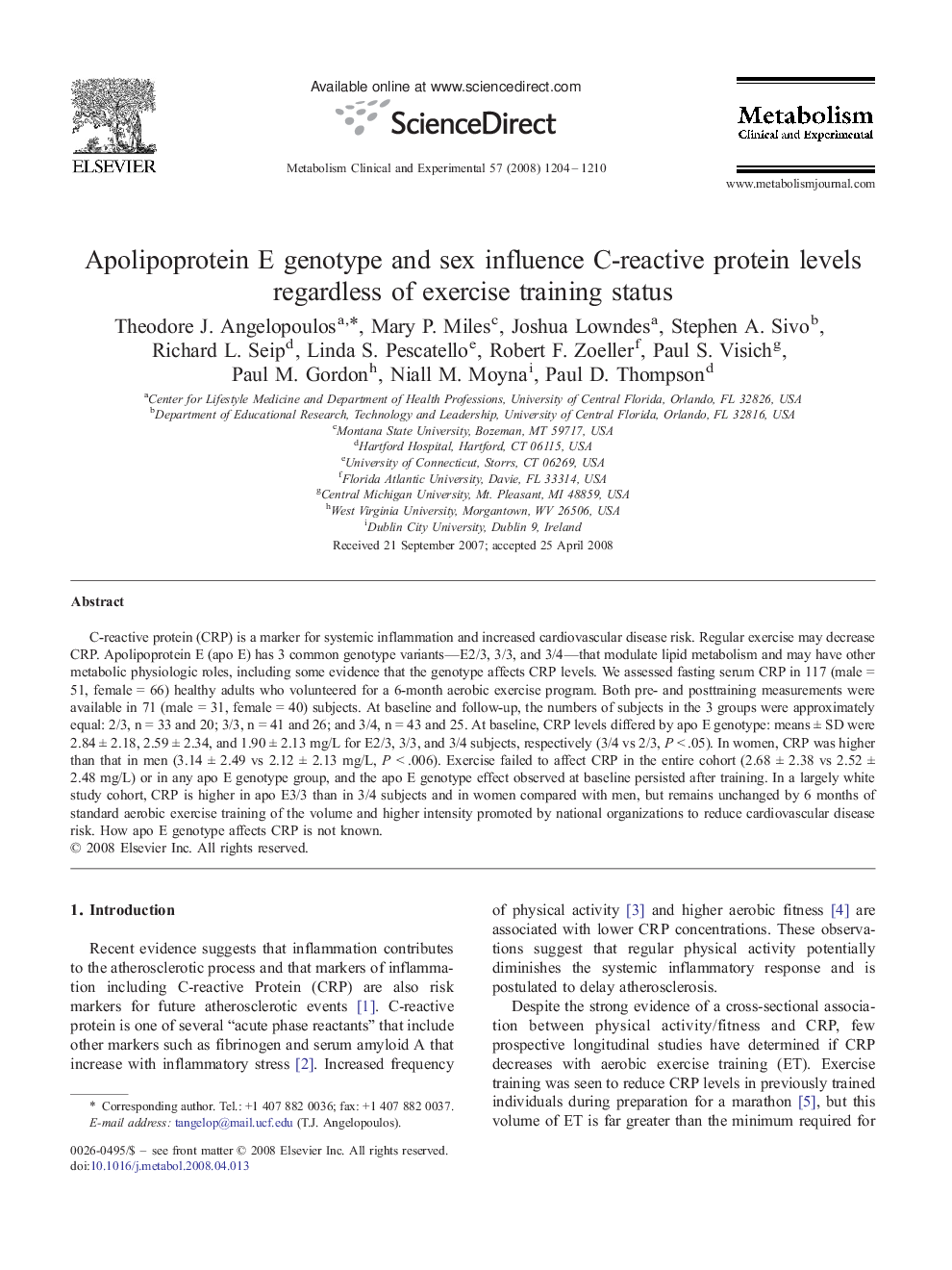| Article ID | Journal | Published Year | Pages | File Type |
|---|---|---|---|---|
| 2806663 | Metabolism | 2008 | 7 Pages |
Abstract
C-reactive protein (CRP) is a marker for systemic inflammation and increased cardiovascular disease risk. Regular exercise may decrease CRP. Apolipoprotein E (apo E) has 3 common genotype variants-E2/3, 3/3, and 3/4-that modulate lipid metabolism and may have other metabolic physiologic roles, including some evidence that the genotype affects CRP levels. We assessed fasting serum CRP in 117 (male = 51, female = 66) healthy adults who volunteered for a 6-month aerobic exercise program. Both pre- and posttraining measurements were available in 71 (male = 31, female = 40) subjects. At baseline and follow-up, the numbers of subjects in the 3 groups were approximately equal: 2/3, n = 33 and 20; 3/3, n = 41 and 26; and 3/4, n = 43 and 25. At baseline, CRP levels differed by apo E genotype: means ± SD were 2.84 ± 2.18, 2.59 ± 2.34, and 1.90 ± 2.13 mg/L for E2/3, 3/3, and 3/4 subjects, respectively (3/4 vs 2/3, P < .05). In women, CRP was higher than that in men (3.14 ± 2.49 vs 2.12 ± 2.13 mg/L, P < .006). Exercise failed to affect CRP in the entire cohort (2.68 ± 2.38 vs 2.52 ± 2.48 mg/L) or in any apo E genotype group, and the apo E genotype effect observed at baseline persisted after training. In a largely white study cohort, CRP is higher in apo E3/3 than in 3/4 subjects and in women compared with men, but remains unchanged by 6 months of standard aerobic exercise training of the volume and higher intensity promoted by national organizations to reduce cardiovascular disease risk. How apo E genotype affects CRP is not known.
Related Topics
Life Sciences
Biochemistry, Genetics and Molecular Biology
Endocrinology
Authors
Theodore J. Angelopoulos, Mary P. Miles, Joshua Lowndes, Stephen A. Sivo, Richard L. Seip, Linda S. Pescatello, Robert F. Zoeller, Paul S. Visich, Paul M. Gordon, Niall M. Moyna, Paul D. Thompson,
